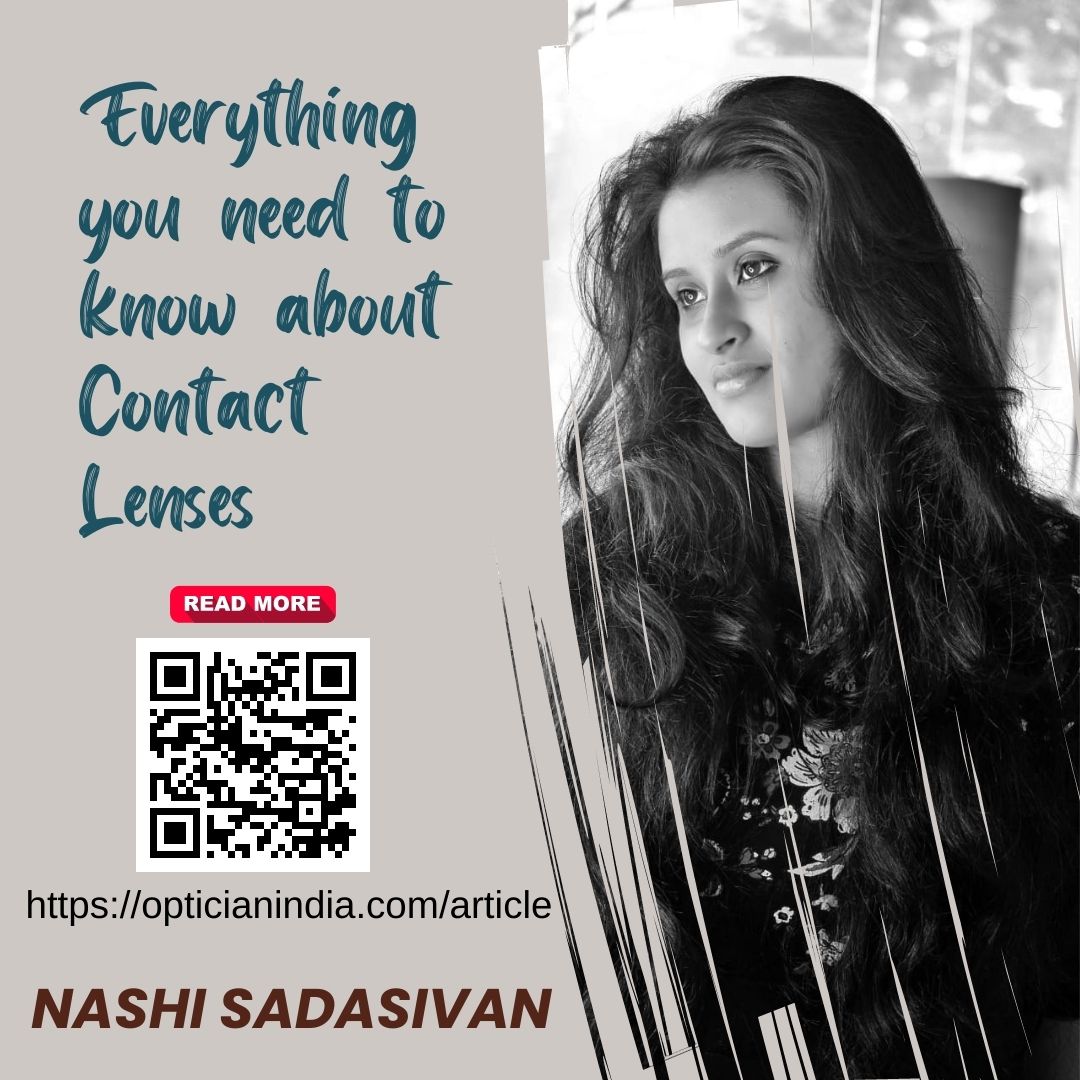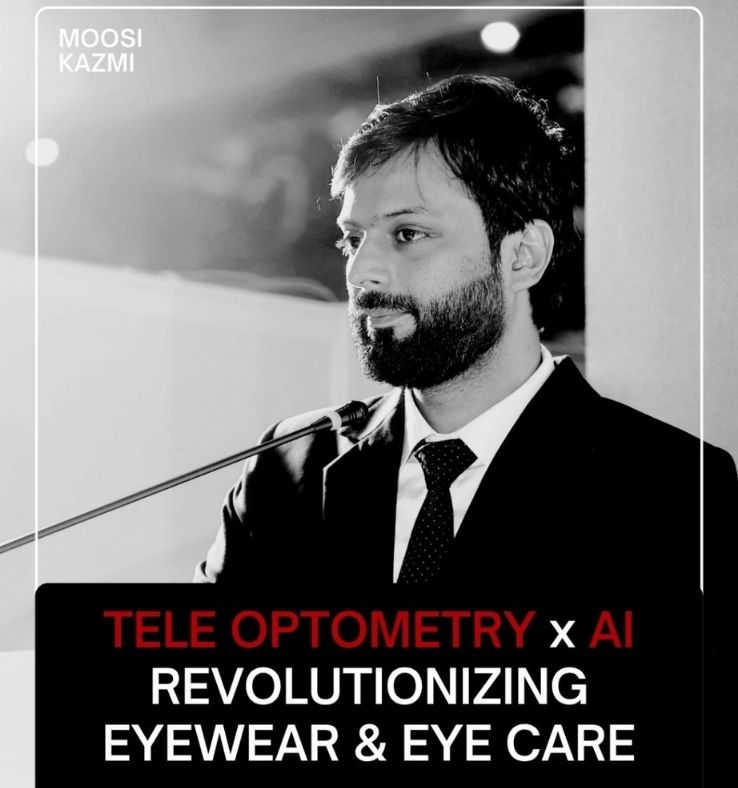EVERYTHING YOU NEED TO KNOW ABOUT CONTACT LENSES

|
The idea of a ‘lens’ was first proposed by Leonardo Da Vinci in 1508 but his ideas of submerging one’s head in a bowl of water or wearing a water-filled glass hemisphere over the eyes turned out to be impractical. Many more versions came forth afterwards but none were practical until the German ophthalmologist Adolf Fick who made the first fitted lens from blown glass in 1888. It was uncomfortable but was wearable and tolerable, unlike its predecessors. It could only be worn for a few hours as it was worn over the entire eye. In 1949 corneal lenses were made, which only sit on the wearer’s cornea; this allowed the users to wear them for up to sixteen hours. Through the 1960s these lenses became popular and gained mass appeal. Every product will have a myth associated with it making consumers reluctant to use it. |
 |
2023-07-11T13_07_57.jpg) |
Contact lenses are difficult to wear: If you are not following the instructions correctly then you will not be able to use the lens correctly. Pay attention when you are taught how to insert and remove the lens safely and follow it as it is to avoid complications.
Contacts are uncomfortable: you are inserting a foreign object into your eyes, your eyes being sensitive and new to this will show discomfort during the first few times but will soon get used to it.
Contact lenses cause infections: the lens itself won’t cause any infection but the way in which it is handled can. As long as you adhere to your doctor’s orders and understand the risks involved in skipping the regular cleansing of your lens or follow-ups with your doctor, you are safe.
Contact lenses can get stuck or lost: neither of these is true. Your lens can never get lost behind your eyes because there is nowhere for it to wander off to! It can get stuck due to dryness or in case you sleep off with it (which should be avoided) but for this, you are given the solution. Hydrate your eyes with this and you are good to go.
These are a few among many myths about contact lenses that have been debunked. Just remember that even a Q-tip is dangerous if you don’t know how to use it. You have to take every direction given to you seriously. That is the first step in keeping your eyes safe. With the popularity of contact lenses increasing world-wide for vision correction, cosmetic purposes or therapeutic reasons, they are one of the best alternatives to glasses.
If you are someone who is considering to switch to lens here are a few things you need to know:
You should switch to contacts if you feel it’s necessary, not if others feel it’s necessary. A major reason for switching is because contacts will boost your confidence and won’t tamper with your appearance but keep in mind switching to contact is not an easy solution .
* You have to follow the instructions carefully when using contacts, never wash your lenses with water and don’t try making your own solution for cleaning them .
* Always consult with your doctor to get a properly fitted lens .
* You may experience discomfort while using it for the first few times but you have to be patient with it .
* Never sleep with your contacts on as this is likely to cause corneal infection and irritations unless your doctor recommends it.
* Remove your contacts before taking a shower or a swim and keep them away from water in general .
* If you want to avoid the hassle of caring for your lens you can always go for daily disposable ones which won’t cost you any more than long-term lenses .
* Just because contacts can be worn regardless of age make sure that it is used by a responsible and mature person who is well-informed. This is a reason why children are often seen wearing glasses as this omits the constant touching or rubbing of their eyes .
* You can use your contacts every day except when you are experiencing eye dryness, redness and irritation as you will end up making it worse by applying contacts in such a scenario .
* Wear sunglasses on top of your lens on a sunny day.
There are different varieties of contact lenses based on their purpose and material used eg:corrective contact lens, cosmetic contact lens, therapeutic lens, soft lens, hybrid, rigid lens, daily wear and continuous wear, regardless every lens requires proper care and usage making these points applicable to every user.
Compared to glasses contact lenses have many advantages:
* The lens can provide a wider field view.
* Glasses will fog up during cold weather whereas a contact will not be affected by weather conditions.
* Glasses often clash with your attire or tamper with your appearance meanwhile contacts can even be used to experiment with your eye colour.
* Contacts are best when it comes to outdoor activities and sports.
* In the case of strong prescriptions contact lenses are often considered better.
* Glasses may not be a discomfort to your eyes but your ears and nose beg to differ.
* Contacts allow you to wear sunglasses, 3D glasses or any other accessories on top.
This doesn’t mean contacts are superior for it has its own set of disadvantages:
* When compared to glasses contacts are difficult to wear, you have to understand the technique to apply them properly .
* Glasses are cheaper and have low maintenance cost, it is also less likely to get lost .
* Glasses won’t tempt you to touch or rub your eyes often which will reduce your chance of having irritated eyes .
* Contacts cannot protect your eyes from wind and dust.
* Frames are often considered stylish and are used to make one appear bold .
It is quite a dilemma to choose between glasses and contacts, now that you have an idea of what to anticipate, you are ready to decide. Also here’s a tip to make things easier for you, if you decide to go along with contacts then keep a pair of backup glasses in hand. You never know when it will come in handy, after all, contacts won’t help you start a fire!
Finally here are some amusing facts about contact lenses:
* Early contacts were made of blown glass .
* Two-thirds of the wearers are females .
* Teenagers who wear contacts have higher self-confidence when compared to the ones who prefer glasses .
* Contacts won’t pop out of your eyes... not anymore!
* 40-90% of the users won’t follow proper hygiene which leads to serious eye infections.

.jpg)

.jpg)
.jpg)
.jpg)


1.jpg)



.jpg)
.jpg)



_(Instagram_Post).jpg)
.jpg)
_(1080_x_1080_px).jpg)


with_UP_Cabinet_Minister_Sh_Nand_Gopal_Gupta_at_OpticsFair_demonstrating_Refraction.jpg)
with_UP_Cabinet_Minister_Sh_Nand_Gopal_Gupta_at_OpticsFair_demonstrating_Refraction_(1).jpg)

.jpg)








.jpg)



.png)




